Professional Courses
Industry-relevant training in Business, Technology, and Design
Categories
Interactive Games
Fun games to boost memory, math, typing, and English skills
Typing
Memory
Math
English Adventures
Knowledge
How Many Attempts Are Allowed for JEE Advanced? Rules Explained
How Many Attempts Are Allowed for JEE Advanced? Rules Explained
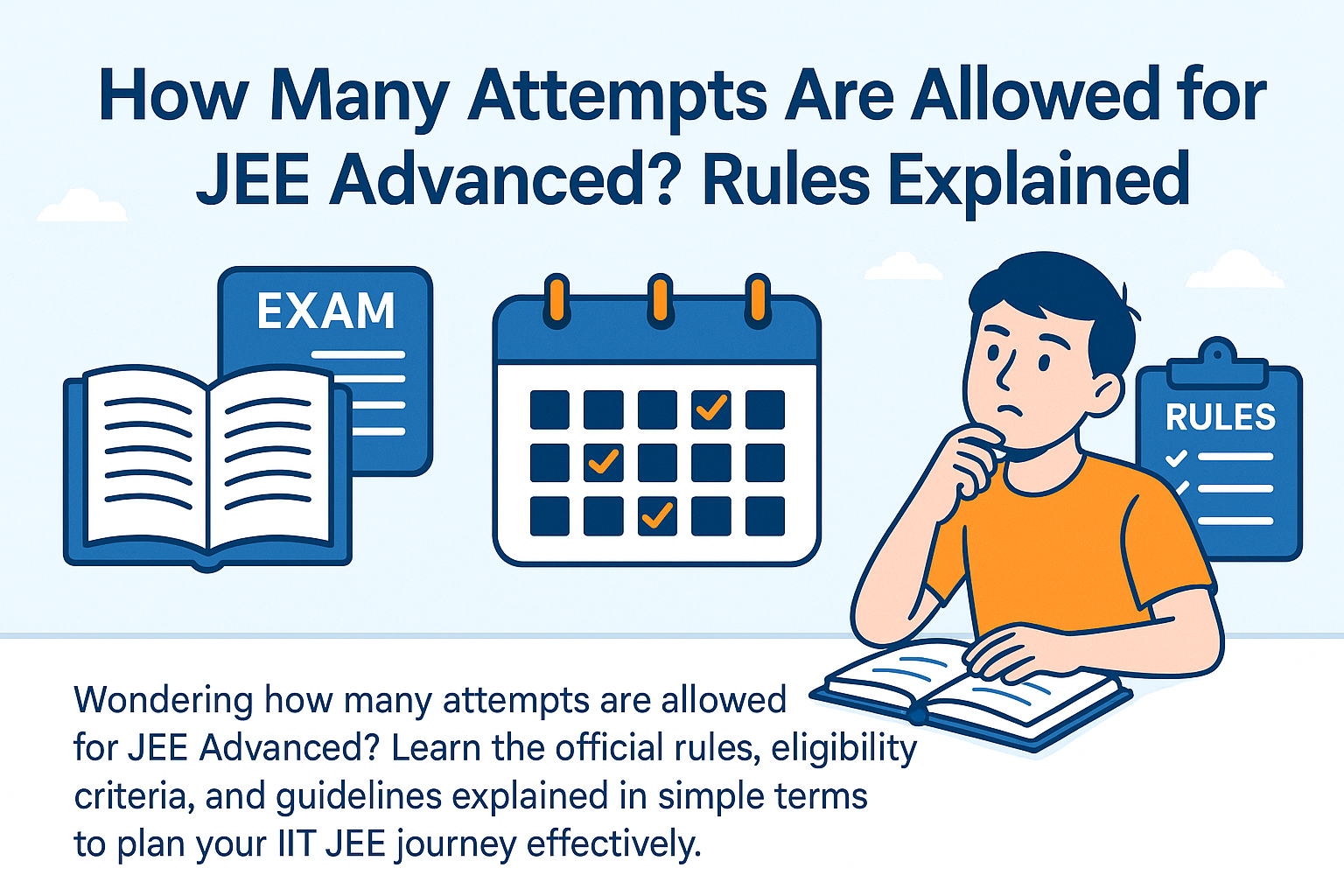
When students start preparing for the Joint Entrance Examination Advanced, one of the first questions that comes to their mind is how many attempts are allowed. This is natural because the JEE Advanced is one of the toughest entrance examinations in India and knowing the number of attempts gives clarity on planning, strategy, and motivation. In this article, we will explore in detail the attempt rules, eligibility criteria, and important guidelines issued by the examination authorities. We will also go deeper into how students can maximize their chances of success within the allowed attempts and why having a proper plan is so important.
Understanding JEE Advanced in Simple Terms
The JEE Advanced is the gateway to the prestigious Indian Institutes of Technology (IITs). To even sit for this exam, students must first clear the JEE Main and be among the top performers who qualify. Because the competition is intense and the number of seats is limited, the exam is designed to test not only knowledge but also analytical skills, problem-solving ability, and time management.
Many students spend years preparing for JEE Advanced, which is why the number of attempts becomes such an important factor. Knowing whether you have one attempt, two attempts, or more gives you clarity on how to structure your preparation year by year.
JEE Advanced At a Glance
- Full Form: Joint Entrance Examination Advanced
- Conducting Authority: One of the IITs on a rotational basis under the Joint Admission Board (JAB)
- Purpose: Entrance test for admission to IITs and some other top institutes
- Eligibility: Top 2.5 lakh JEE Main qualifiers, with category-wise cutoffs
- Mode of Exam: Computer-based test (CBT)
- Frequency: Once a year, usually in May/June
- Duration: Two papers of 3 hours each (both compulsory)
- Subjects Covered: Physics, Chemistry, Mathematics
- Language: English and Hindi
- Marking Scheme: Varies (includes full, partial, and negative marking)
- Difficulty Level: Considered one of the toughest entrance exams in the world
- Admission Scope: IITs, IISc, and some other centrally funded institutions
Official Rules on Attempts for JEE Advanced
According to the current guidelines of the Joint Admission Board (JAB), which conducts the JEE Advanced exam, a student can attempt the examination a maximum of two times in two consecutive years. This means if you appear for the exam in Class 12, you will have one more chance to appear the following year. After that, you are no longer eligible, no matter how many times you have tried JEE Main or how much you want to continue.
This two-attempt rule is strict and followed carefully by the examination authorities. Even if you are unable to perform well due to illness, stress, or any other personal issue, the attempt will still count once you have registered and appeared.
Why Only Two Attempts?
Many students wonder why the authorities restrict the exam to just two attempts. The reason lies in the philosophy behind JEE Advanced. The IITs want to ensure that the students entering their system are fresh from school and within a limited age bracket. They also want to prevent endless repetition and encourage students to give their best in a focused manner within a short period of time.
The idea is that preparing for the exam should not become an endless cycle. Instead, students should plan their strategy, give their maximum effort, and move forward with their careers whether or not they succeed.
Relationship Between JEE Main and JEE Advanced Attempts
Another point of confusion for many students is how the JEE Main attempts connect with JEE Advanced attempts. The JEE Main allows more flexibility because students can appear for it six times across three years (two times each year in January and April sessions). However, qualifying JEE Main multiple times does not increase your JEE Advanced attempts.
For example, if you qualify for JEE Main in your Class 12 year, you can appear for JEE Advanced that year. If you again qualify the next year, you can appear for JEE Advanced one more time. That is the maximum. Even if you continue to appear for JEE Main after that, you will no longer be eligible for JEE Advanced once your two attempts are used.
Age Limit Alongside Attempt Rules
The attempt rules are also tied closely with age limits. Generally, a student must have been born on or after October 1, 2000 (with a relaxation of five years for candidates from SC, ST, and PwD categories). This rule ensures that the candidate pool is restricted to young aspirants who are just stepping out of school education.
The age limit and attempt rule together mean that a student practically has two consecutive chances after Class 12 to secure admission through JEE Advanced.
Common Myths About JEE Advanced Attempts
There are several misconceptions that circulate among students and parents about JEE Advanced attempts. Let us clarify a few:
-
Myth: A gap year gives extra attempts.
Fact: Even if you take a gap year after Class 12, you only have two attempts in total. The gap does not add more chances. -
Myth: If you register but do not sit for the exam, it does not count.
Fact: Only appearing in the exam counts as an attempt. If you register but skip the exam, it will not be considered an attempt. -
Myth: JEE Main attempts and JEE Advanced attempts are the same.
Fact: They are completely different. You may appear for JEE Main multiple times, but you get only two shots at JEE Advanced. -
Myth: Private coaching or dummy school registration can give more attempts.
Fact: No coaching or institution can increase your official attempts. The rules are standardized across the country.
Strategy to Maximize Chances Within Two Attempts
Since you only have two attempts, it is important to plan carefully. Here are some suggestions:
- Class 11 and Class 12 Preparation: Ideally, your first attempt should be right after Class 12. This requires strong preparation from Class 11 itself, since the exam syllabus covers both classes.
- First Attempt as a Learning Attempt: Many students treat the first attempt as an experience and the second as the final shot. However, it is better to give your best effort in both attempts.
- Strong Basics: Focus on concepts rather than memorization. This will help in problem-solving, which is at the heart of JEE Advanced.
- Mock Tests and Analysis: Take timed mock tests regularly. Analyse your mistakes and keep improving. Online practice resources such as AllRounder.ai Courses for Class 11 and AllRounder.ai Courses for Class 12 can be very useful.
- Health and Consistency: Sleep, exercise, and good food are essential. Mental sharpness requires a healthy lifestyle.
What Happens If You Do Not Clear JEE Advanced in Two Attempts?
If you do not clear JEE Advanced in two attempts, it may feel disappointing but it is not the end of the road. India offers many other excellent engineering institutes such as National Institutes of Technology (NITs), Indian Institutes of Information Technology (IIITs), and state-level universities. Admission to these institutes is through JEE Main or state entrance exams.
You can also explore AllRounder.ai CBSE courses, AllRounder.ai ICSE courses, and AllRounder.ai IB courses for academic support in your school years. These can help you strengthen your base and perform well in other competitive exams too. The skills and preparation you gain while studying for JEE Advanced will also help in other fields like GATE, GRE, or UPSC in the future.
Looking at the Bigger Picture
Sometimes students become so focused on JEE Advanced that they forget the bigger picture. While IITs are prestigious, success in life does not depend solely on clearing this exam. The skills you learn during preparation like discipline, focus, and analytical ability are lifelong assets. Even if JEE Advanced does not work out, these skills will continue to serve you in any career path.
Tips from Toppers on Using Two Attempts Wisely
Many JEE Advanced toppers suggest that students should take the first attempt very seriously rather than treating it as a practice round. Often, students underestimate themselves and later realize that they could have cleared the exam in their first chance if they had worked harder.
Toppers also emphasize the importance of avoiding distractions, limiting social media use, and sticking to a proper schedule. They recommend solving previous year papers and discussing problems with peers or teachers to gain different perspectives.
The Role of Coaching and Self-Study
Another common question is whether coaching is necessary to succeed in two attempts. Coaching can provide structure, study material, and motivation, but it is not compulsory. Many students have cleared JEE Advanced with disciplined self-study.
If you join a coaching institute, make sure you use it effectively rather than just attending classes. If you prepare at home, use online platforms like AllRounder.ai Games and AllRounder.ai Courses for practice, doubt clearing, and concept strengthening.
Frequently Asked Questions
-
Is JEE Advanced tougher than JEE Main? Yes, JEE Advanced is tougher, both in terms of question complexity and competition level.
-
How many attempts are allowed for JEE Advanced? Students can attempt JEE Advanced a maximum of two times, in two consecutive years.
-
How many students qualify for JEE Advanced? About 2.5 lakh top rankers from JEE Main are eligible each year.
-
Is JEE Advanced computer-based? Yes, the exam is conducted entirely online.
-
How many marks are needed to clear JEE Advanced? This varies each year depending on cutoff trends, but typically qualifying marks are lower than JEE Main due to the tougher nature of the exam.
Conclusion
The rules for JEE Advanced attempts are very clear: two attempts in two consecutive years. Understanding these rules helps students plan better and avoid confusion. With smart preparation, proper time management, and a healthy mindset, students can make the most of these two chances. Even if things do not go as planned, there are always other opportunities waiting. Remember, success is not about a single exam but about how you grow and apply your skills in life.
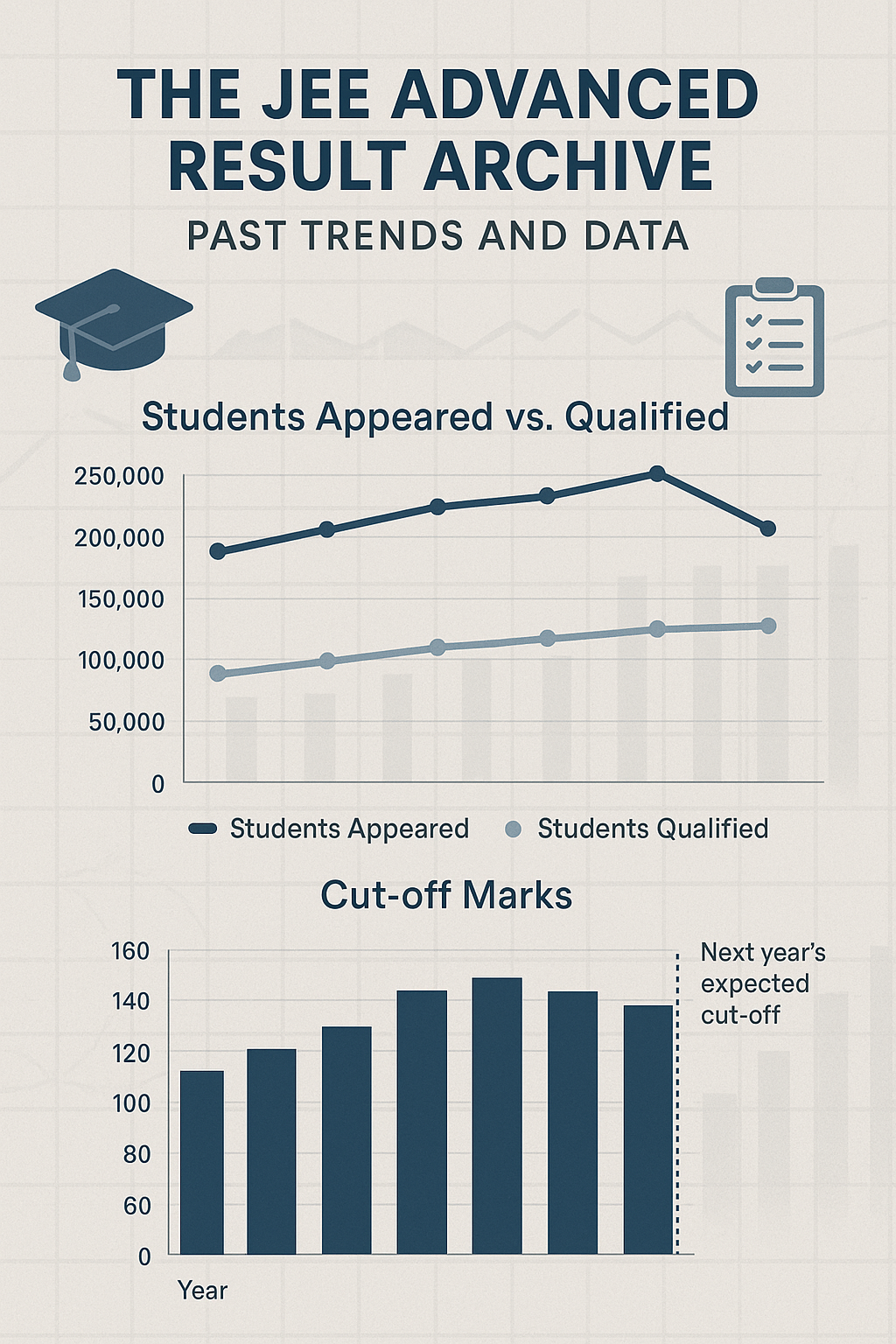
Explore the JEE Advanced Result Archive with past years’ data, insights on students appeared vs qualified, cut-off...
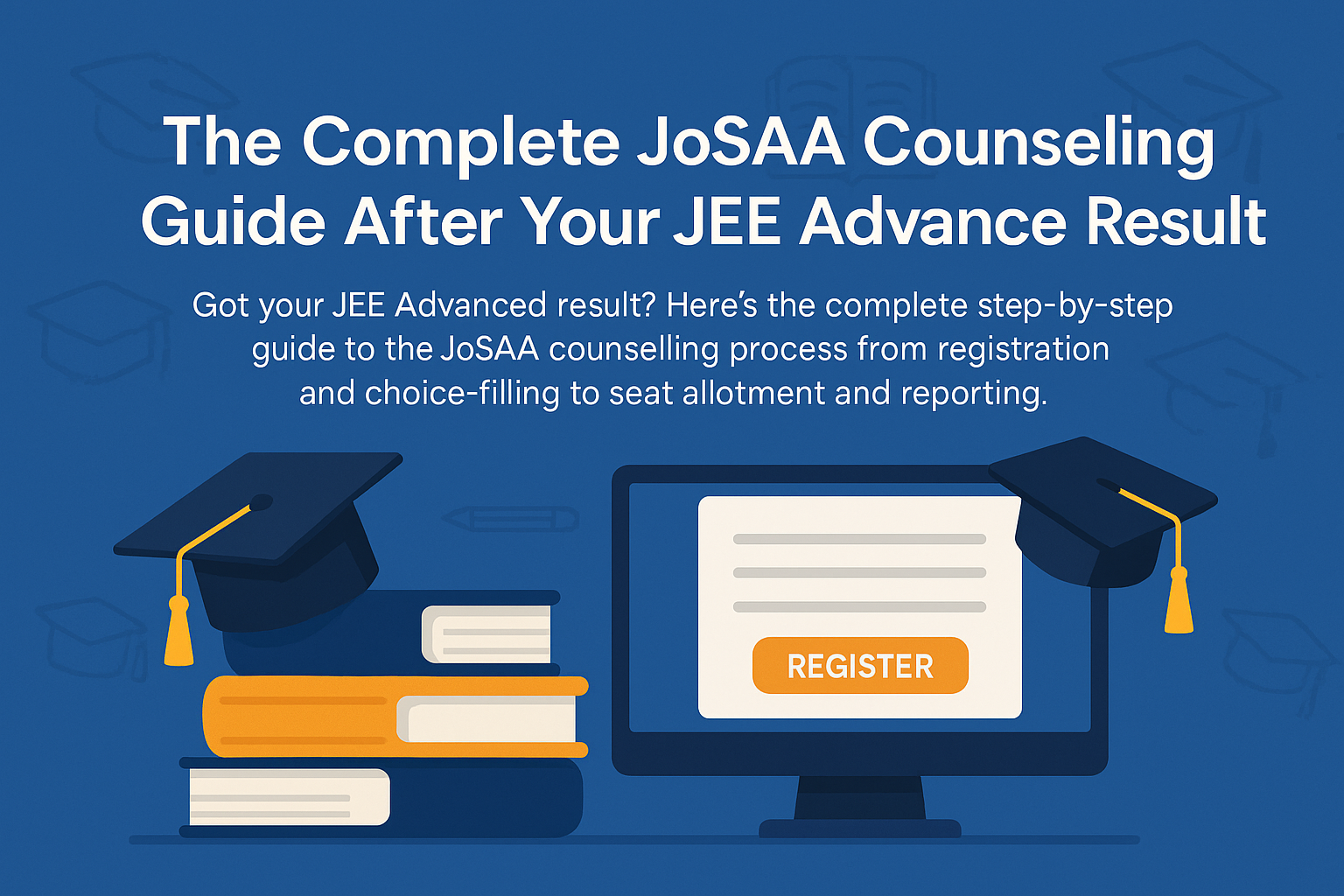
Got your JEE Advanced result? Here’s the complete step-by-step guide to the JoSAA counselling process from...
.jpg?width=500)
How many seats in JEE Advanced? Explore IIT seat distribution across all branches like CSE, Mechanical, Aerospace,...
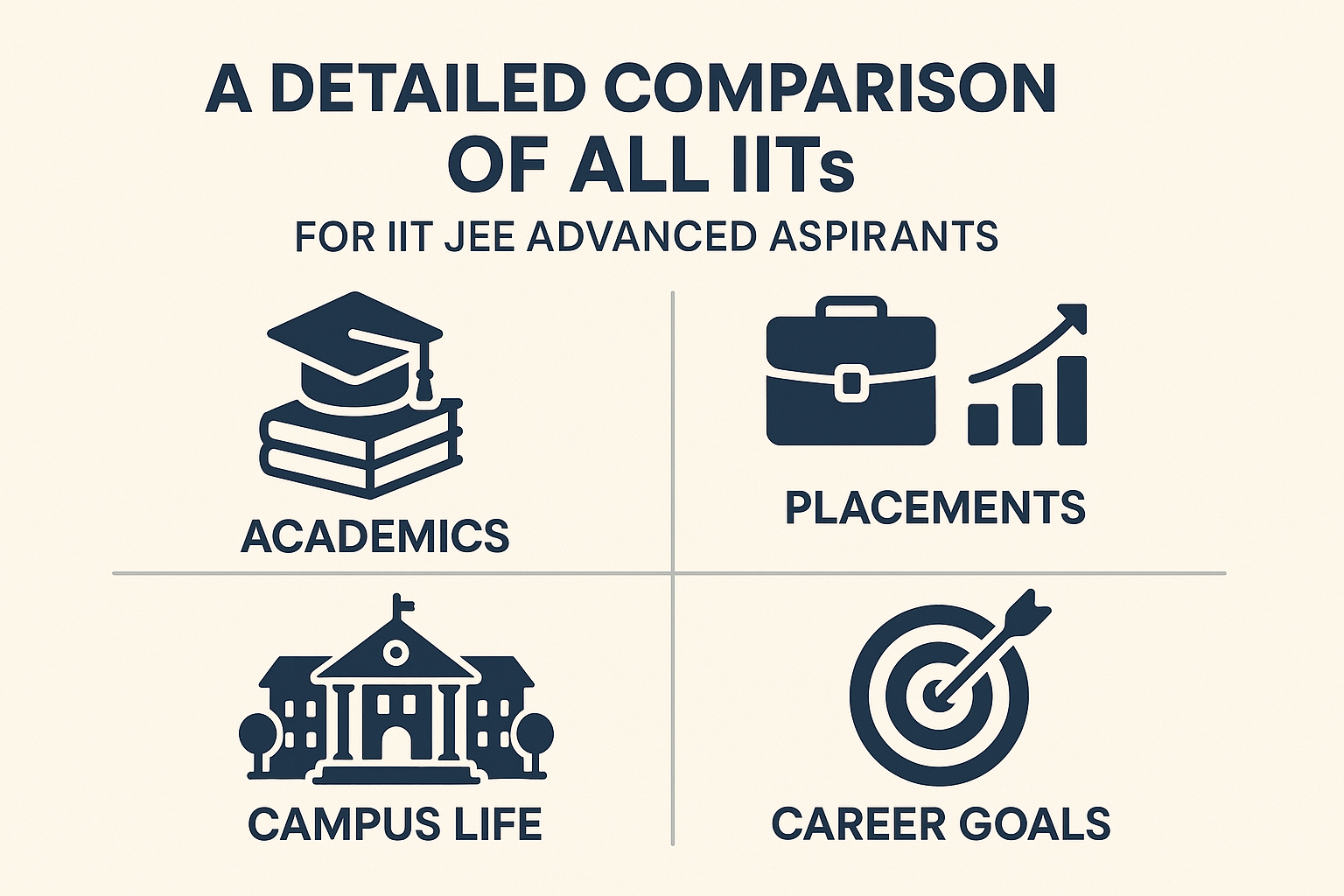
Compare all IITs for JEE Advanced aspirants. Learn about academics, placements, campus life, and find which IIT is...
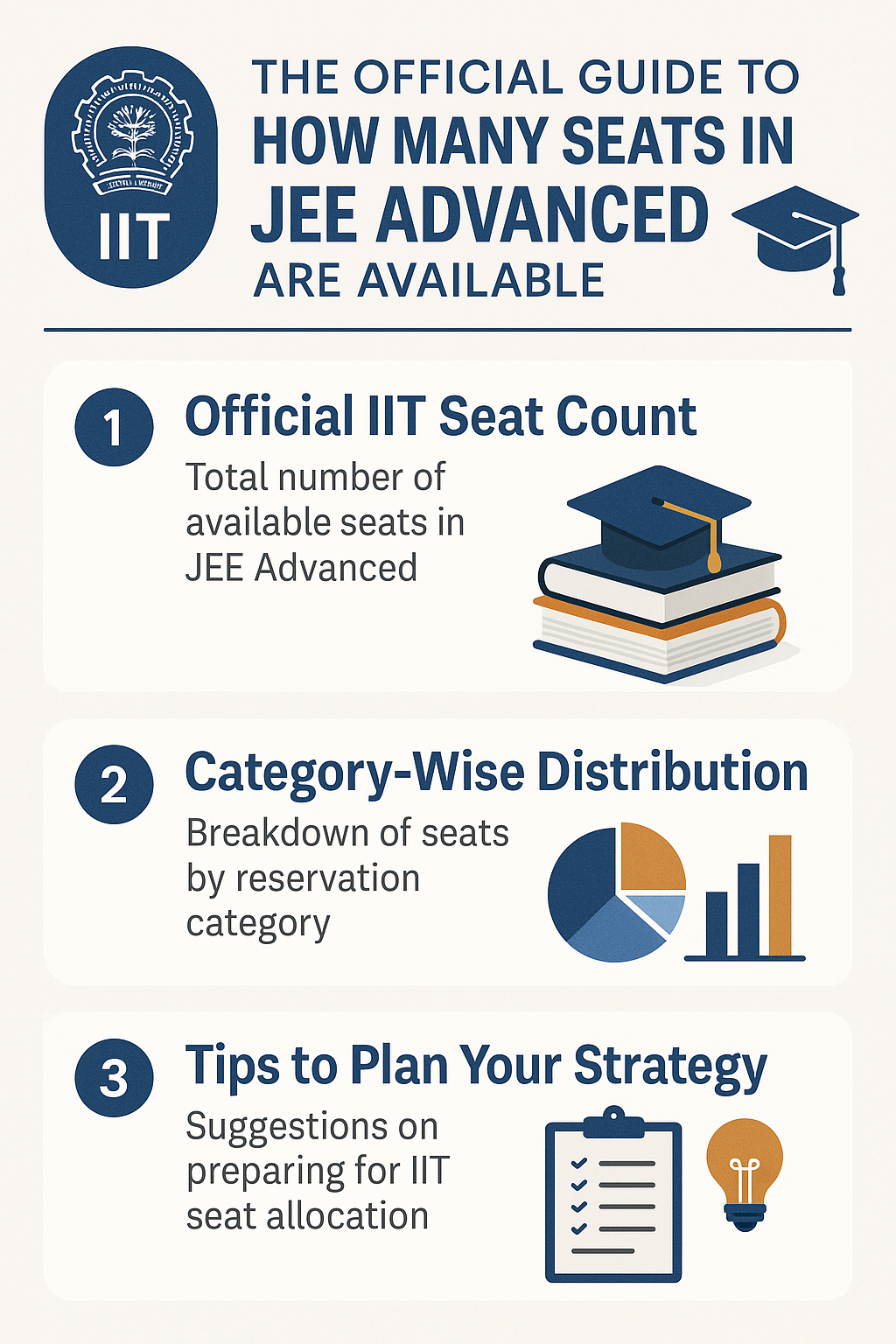
Wondering how many seats in JEE Advanced are available? Get the official IIT seat count, category-wise distribution,...
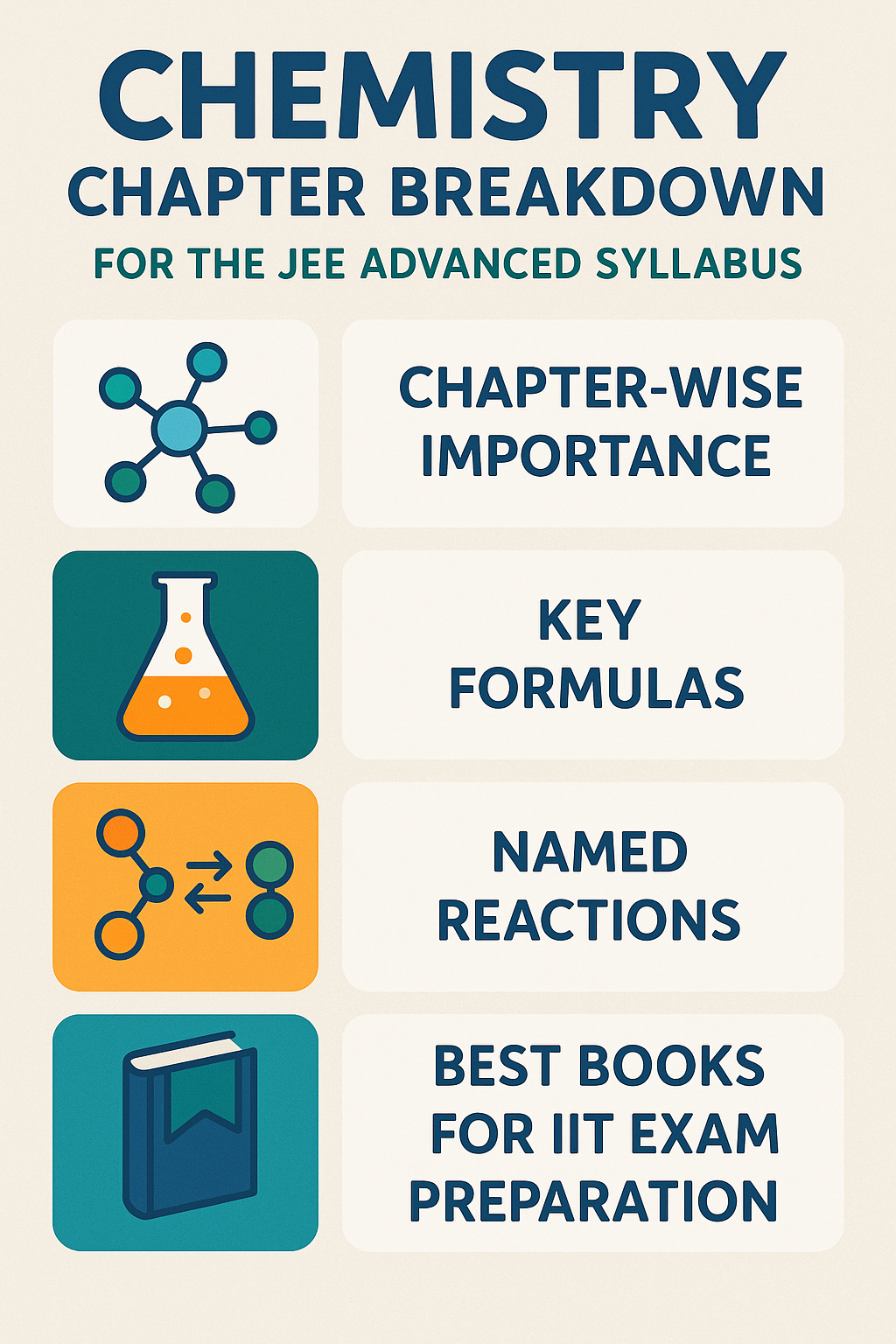
Explore the Chemistry JEE Advanced syllabus with chapter-wise importance, key formulas, named reactions, and the...
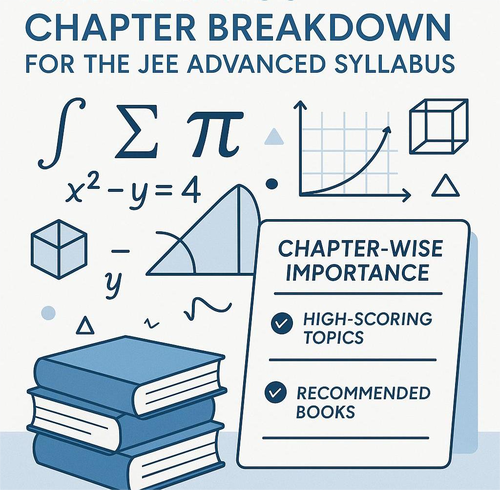
Explore the Maths JEE Advanced syllabus with chapter-wise importance, high-scoring topics, and the best books to...
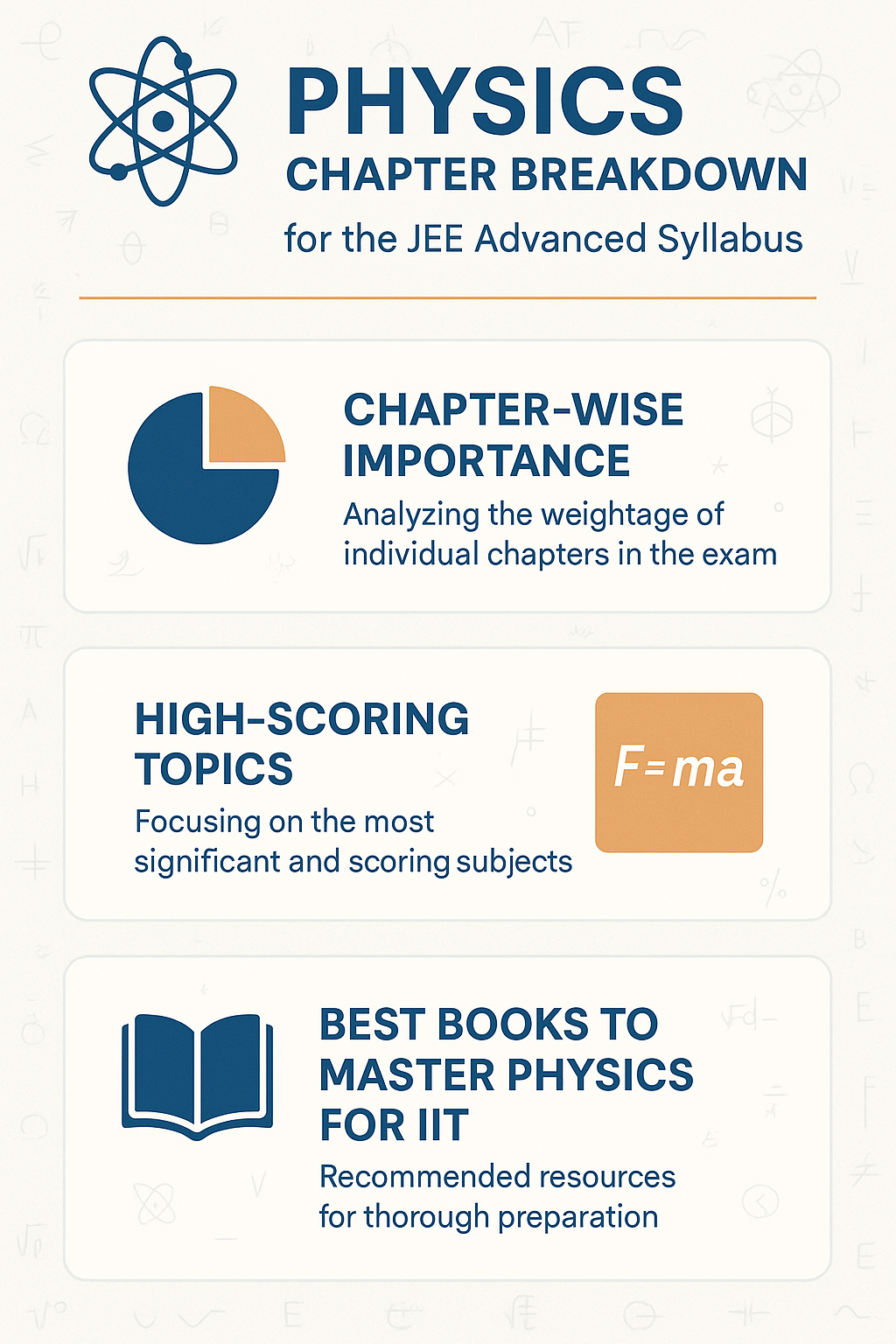
Explore the Physics portion of the JEE Advanced syllabus. Get chapter-wise importance, high-scoring topics, and the...
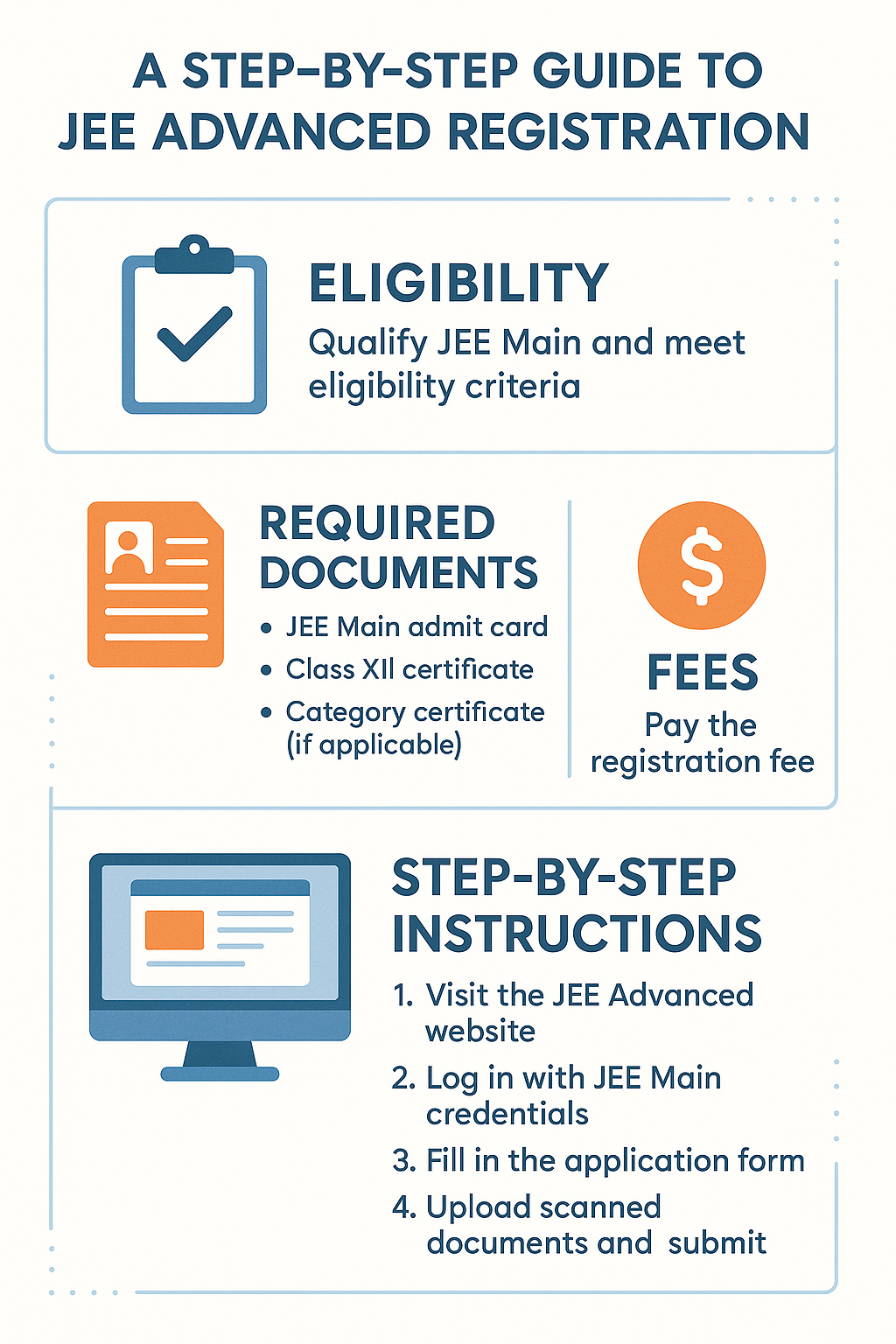
Learn the complete JEE Advanced registration process. Check eligibility, required documents, fees, and step-by-step...
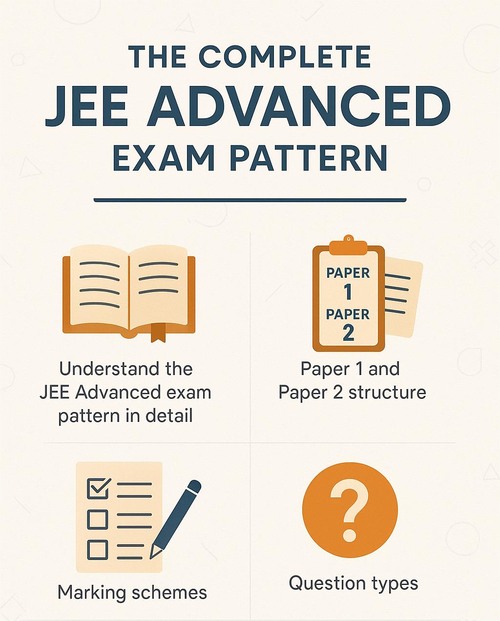
Understand the JEE Advanced exam pattern in detail. Learn about Paper 1 and Paper 2 structure, marking schemes,...
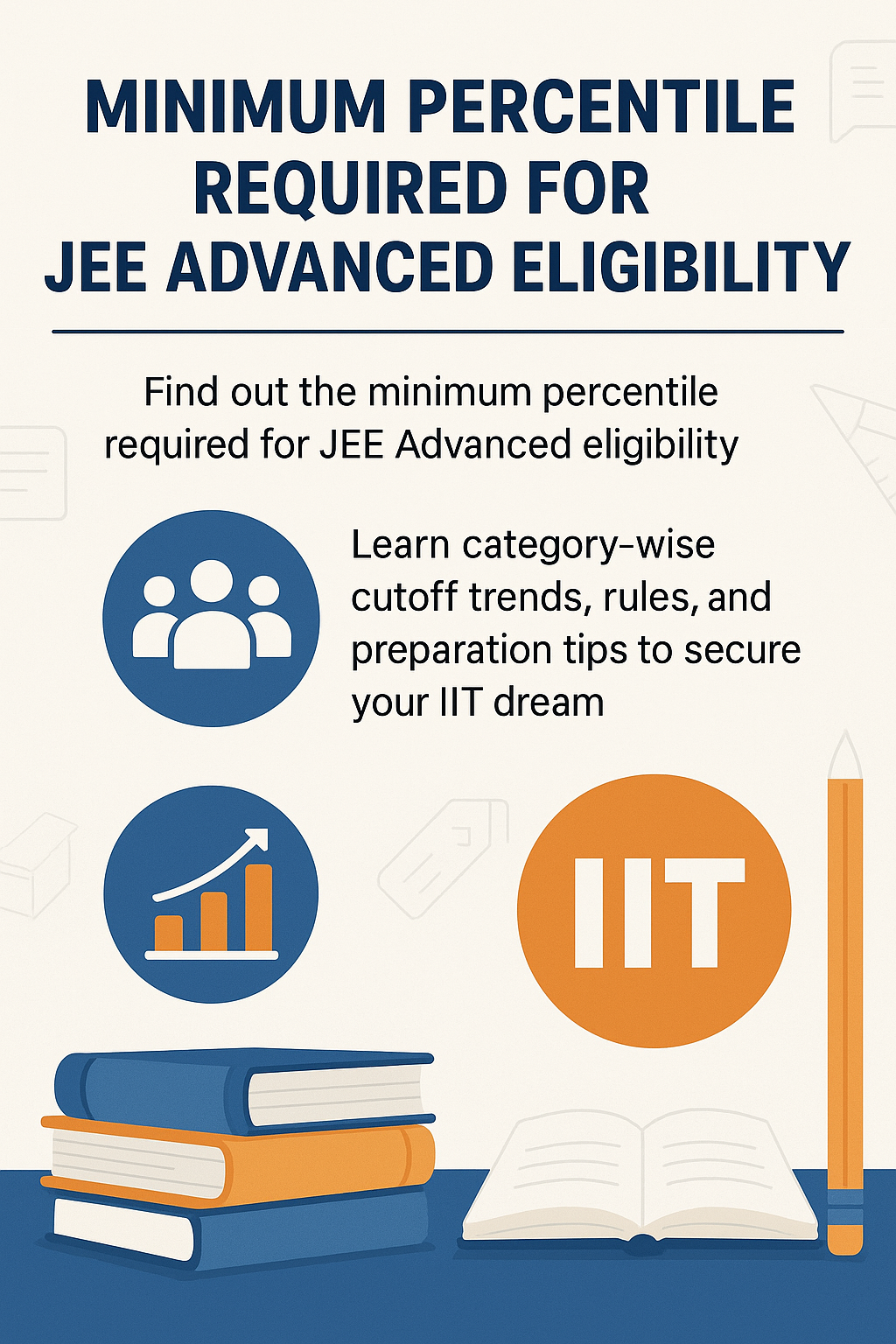
Find out the minimum percentile required for JEE Advanced eligibility. Learn category-wise cutoff trends, rules, and...

Wondering how many attempts are allowed for JEE Advanced? Learn the official rules, eligibility criteria, and...
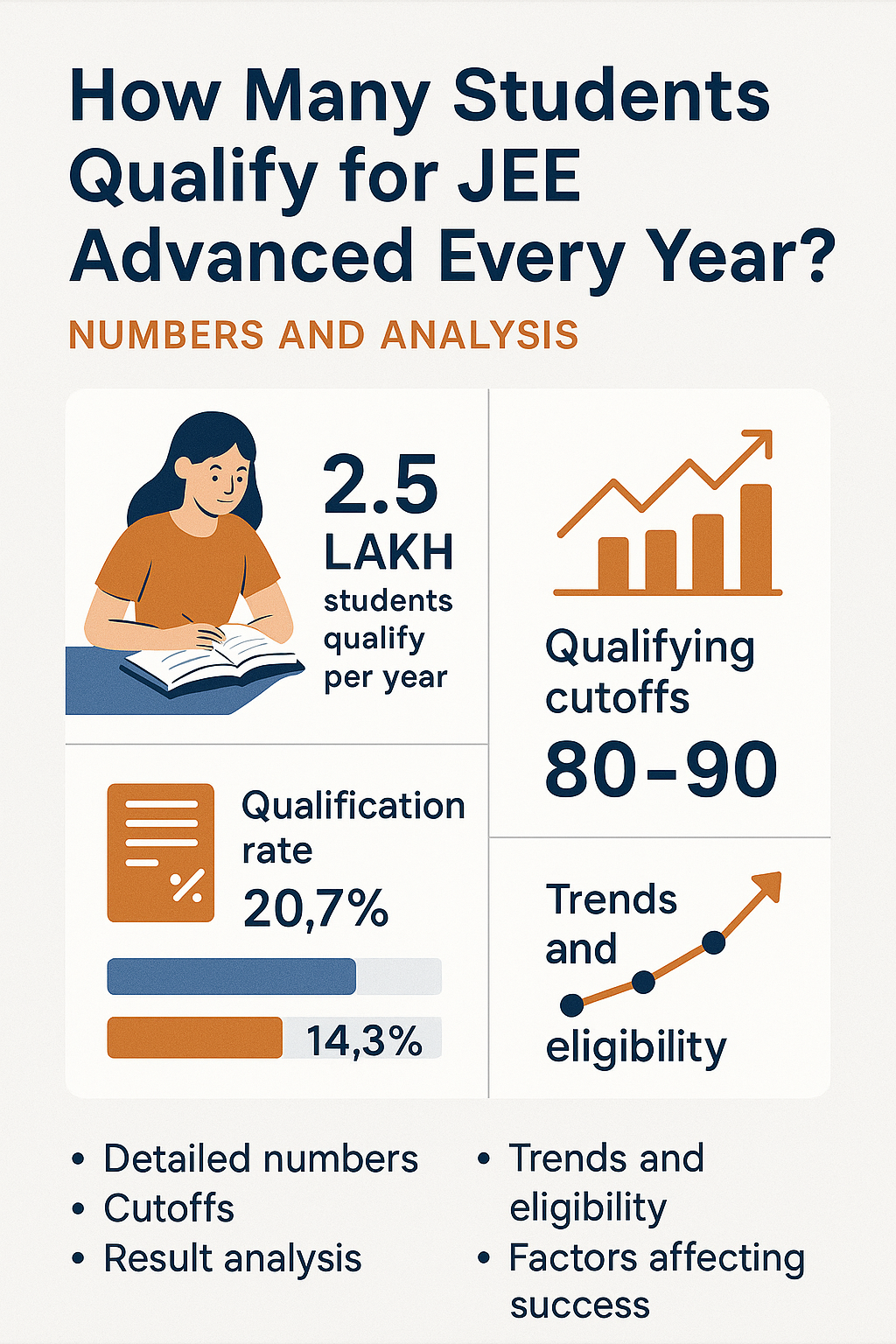
Discover how many students qualify for JEE Advanced every year with detailed numbers, cutoffs, and result analysis....

Stay updated with the latest JEE Advanced news. Get details on exam dates, registration process, results, and...
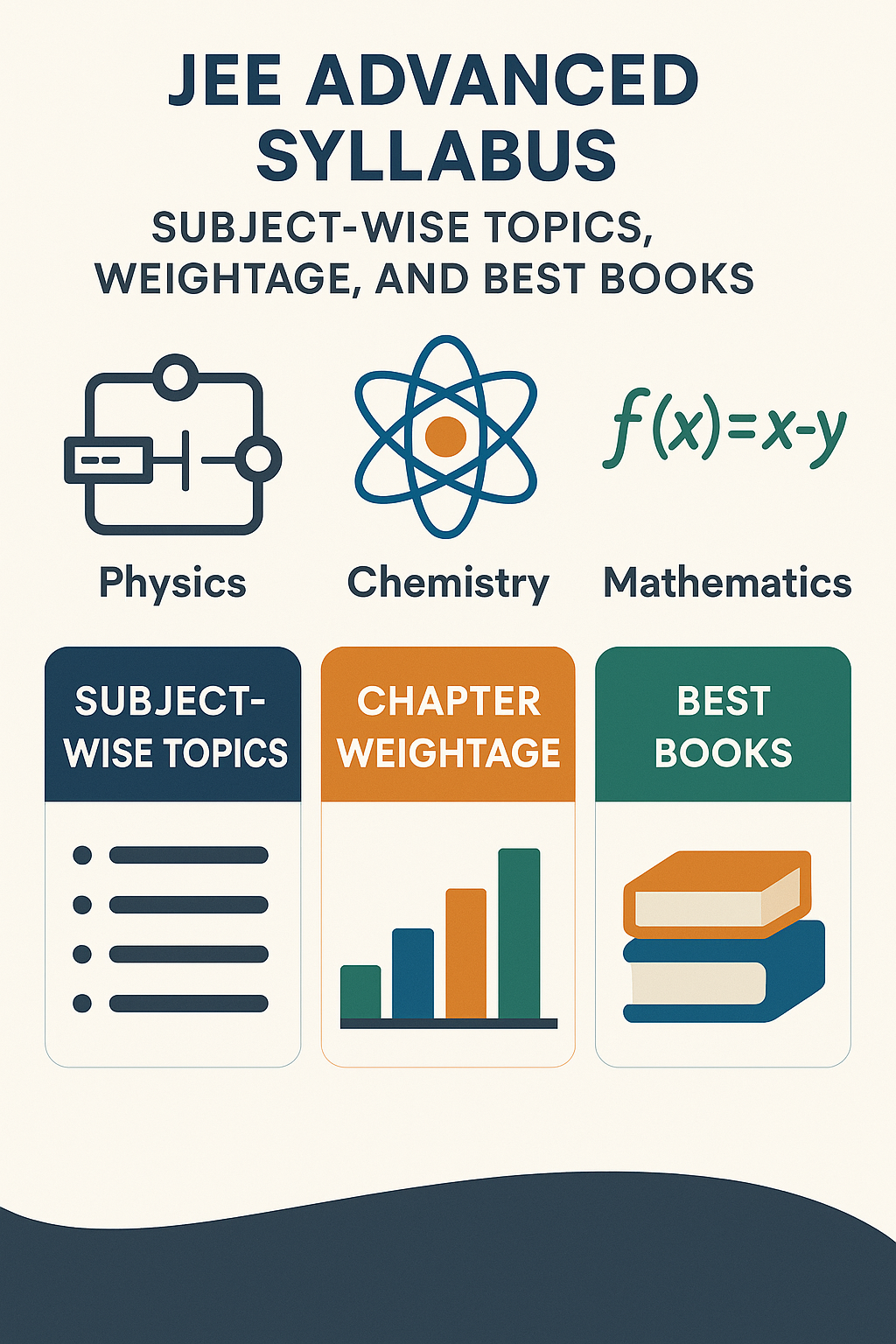
Explore the complete JEE Advanced syllabus with subject-wise topics, chapter weightage, and best books for Physics,...
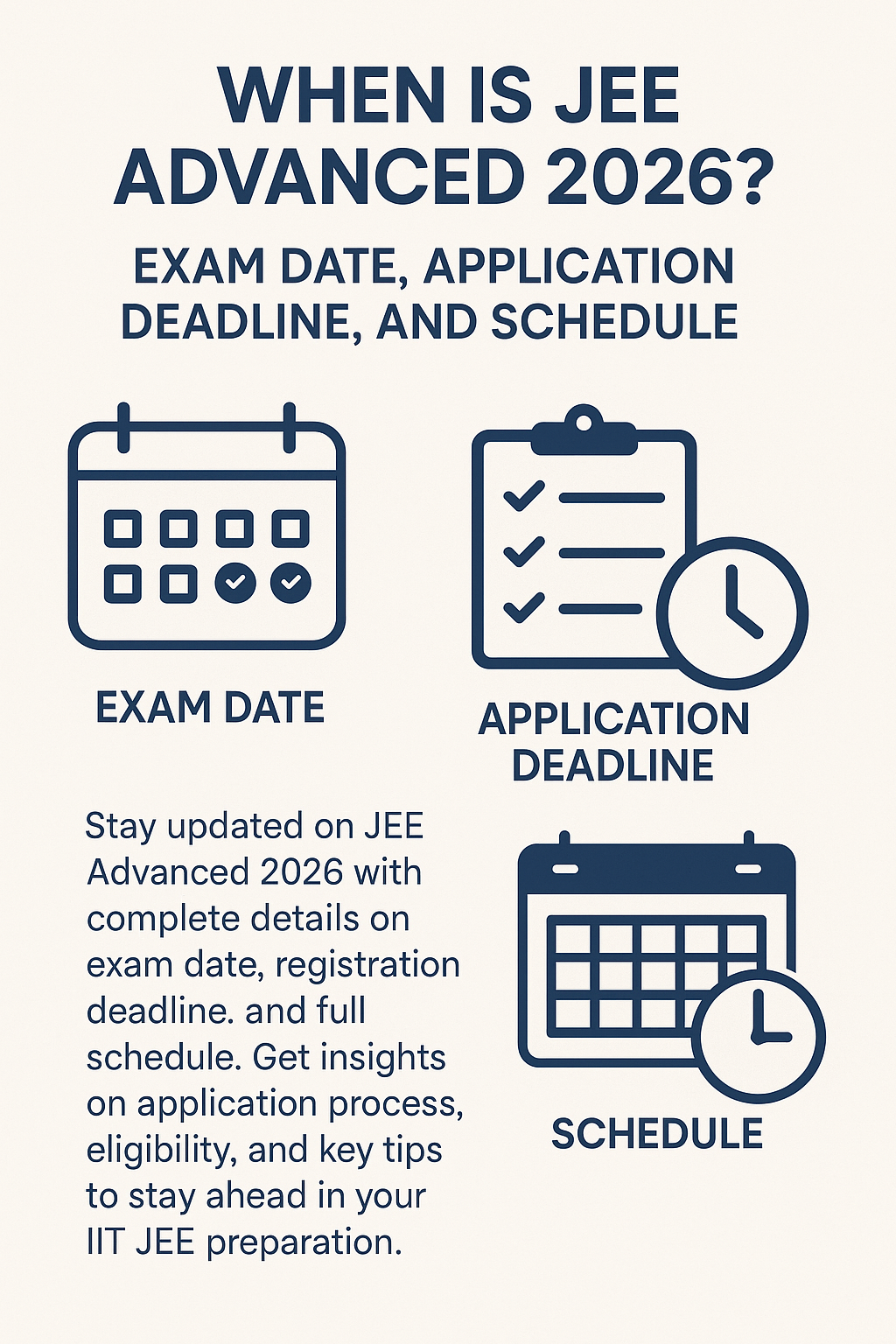
Stay updated on JEE Advanced 2026 with complete details on exam date, registration deadline, and full schedule. Get...
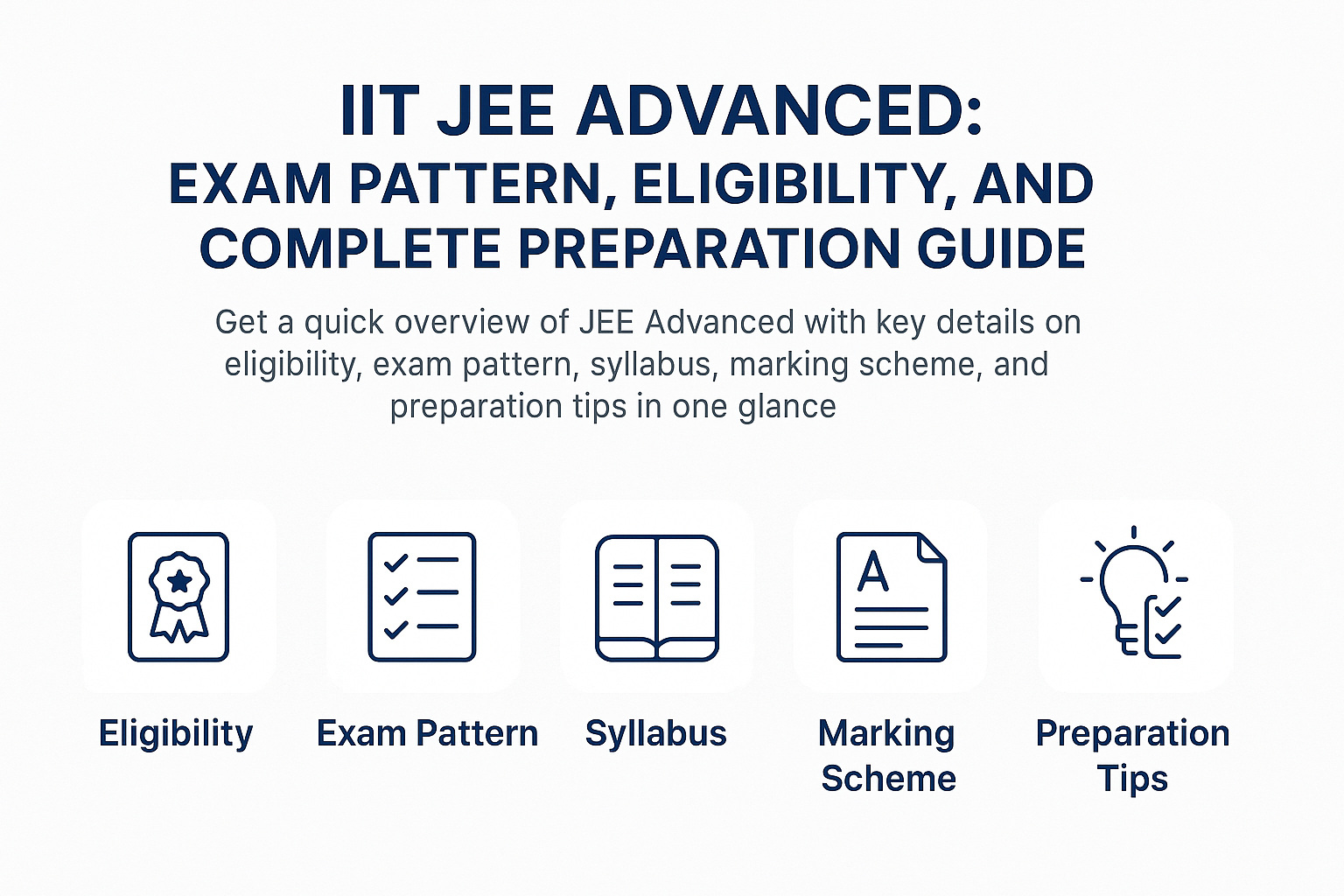
Get a quick overview of JEE Advanced with key details on eligibility, exam pattern, syllabus, marking scheme, and...
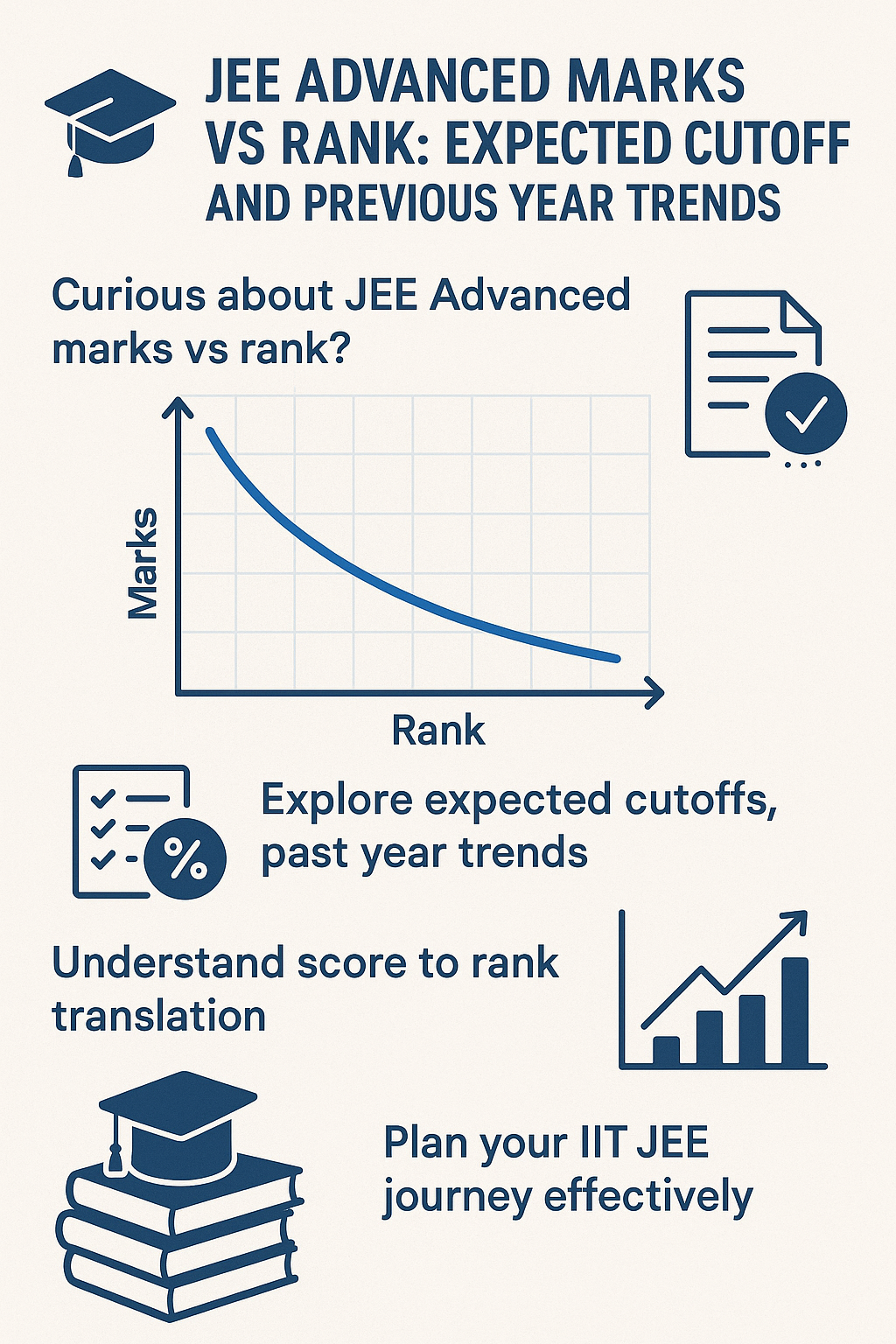
Curious about JEE Advanced marks vs rank? Explore expected cutoffs, past year trends, and how your score translates...
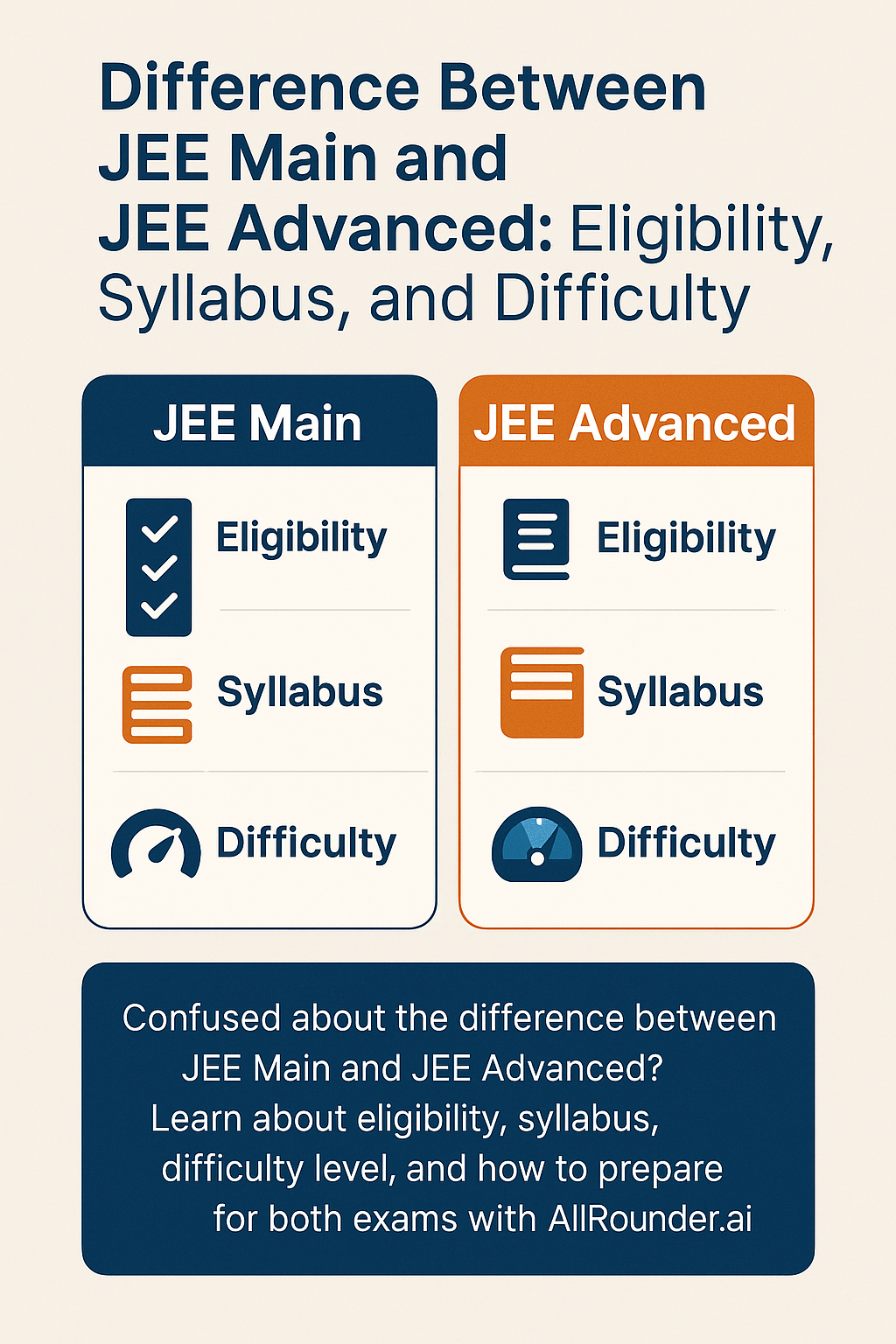
Confused about the difference between JEE Main and JEE Advanced? Learn about eligibility, syllabus, difficulty...
Resources
-
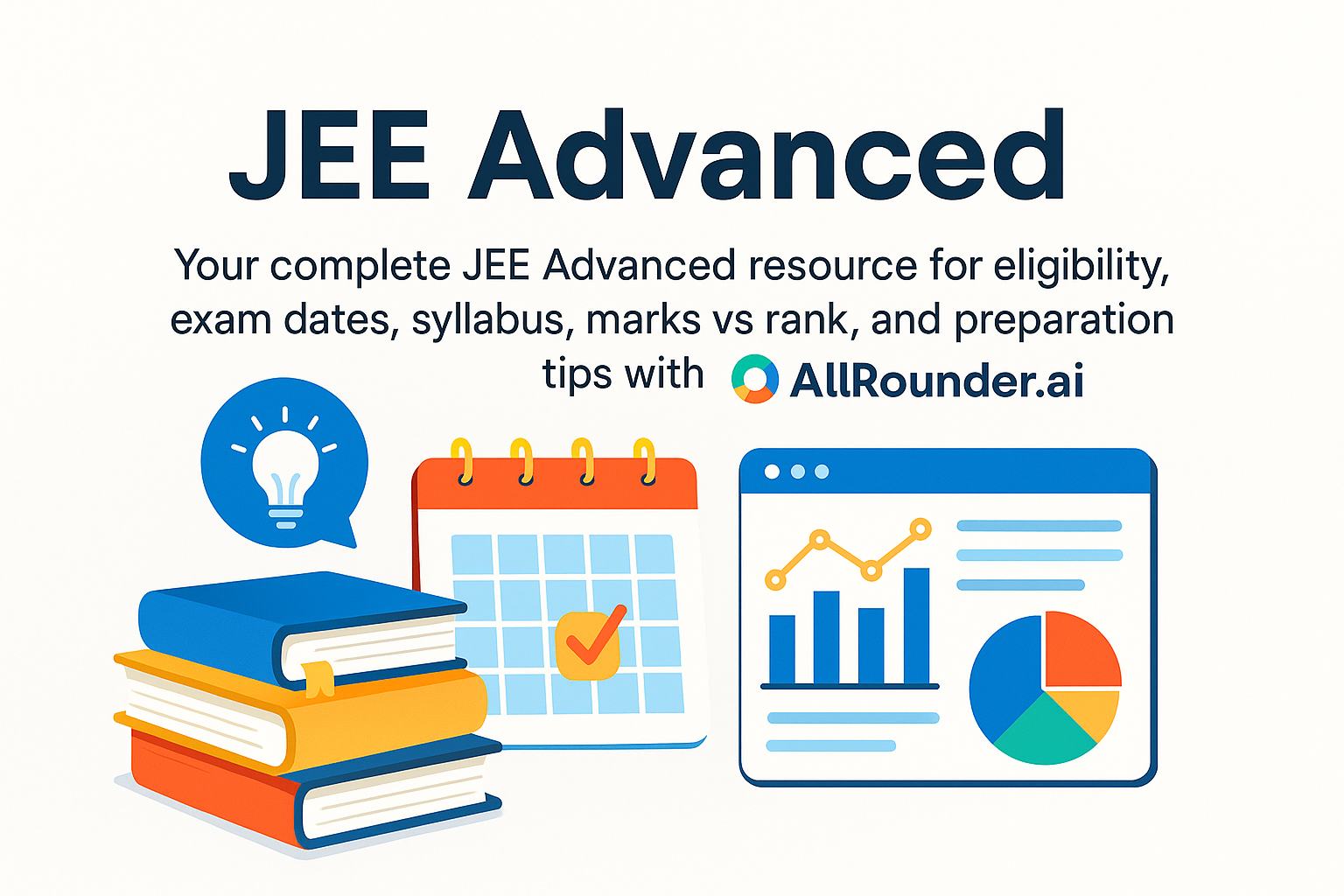
Your complete JEE Advanced resource for eligibility, exam dates, syllabus, marks vs rank, and...
-
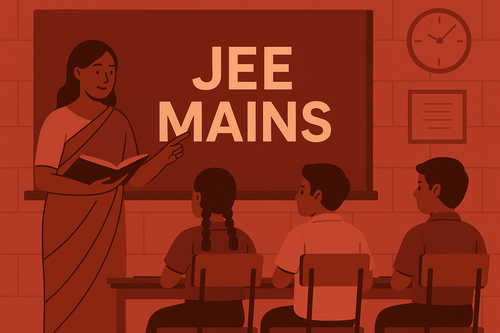
Understand the entire JEE Main process, from application and eligibility rules to the exam...
-

Explore the IB Board – a global curriculum emphasizing holistic, student-centered learning...
-

Learn about CBSE – India’s national school board offering a standardized curriculum, NCERT...
-

Explore everything about the ICSE board – its curriculum, subjects, exam format, and academic...

